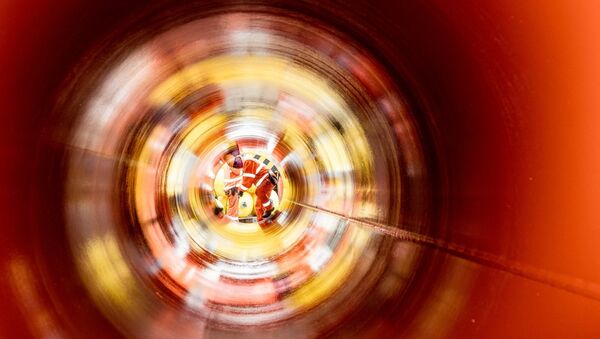Seele told reporters on the sidelines of a gas forum in St. Petersburg that he was certain there was no need to discuss alternative routes for the pipeline.
OMV is one of the companies that have a financing agreement with Nord Stream 2 AG.
The Nord Stream 2 project is a joint venture of Gazprom and five European companies: France's ENGIE, Austria's OMV, British-Dutch Royal Dutch Shell, and Germany's Uniper and Wintershall. The 745-mile-long (1,200 km) twin pipeline is set to run from Russia to Germany to deliver Russian gas to European consumers.
Nord Stream 2 is set to pass through the territories of Denmark, Finland, Germany, Russia and Sweden.
Earlier, Reuters reported that the Nord Stream 2 project’s completion might be delayed by up to eight months and cost an additional $740 million due to Copenhagen’s delays in approving applications to lay the pipeline infrastructure through between 147 and 175 km of the country’s waters. In June, Nord Stream 2 AG withdrew its initial application to route the pipeline through Danish territorial waters south of the island of Bornholm, while the two other options would see the pipeline routed through Denmark’s exclusive economic zone.
The project has long drawn opposition from a number of countries, especially Ukraine, which claims that Moscow plans to deprive Kiev of its gas transition revenues. The United States, which is trying to sell more of its own liquefied natural gas to its overseas allies, insists that the project will make Europe more dependent on Moscow. Russia has repeatedly rebuffed the claims, having accused the US of trying to use tools of “unfair competition under various political pretexts”.


